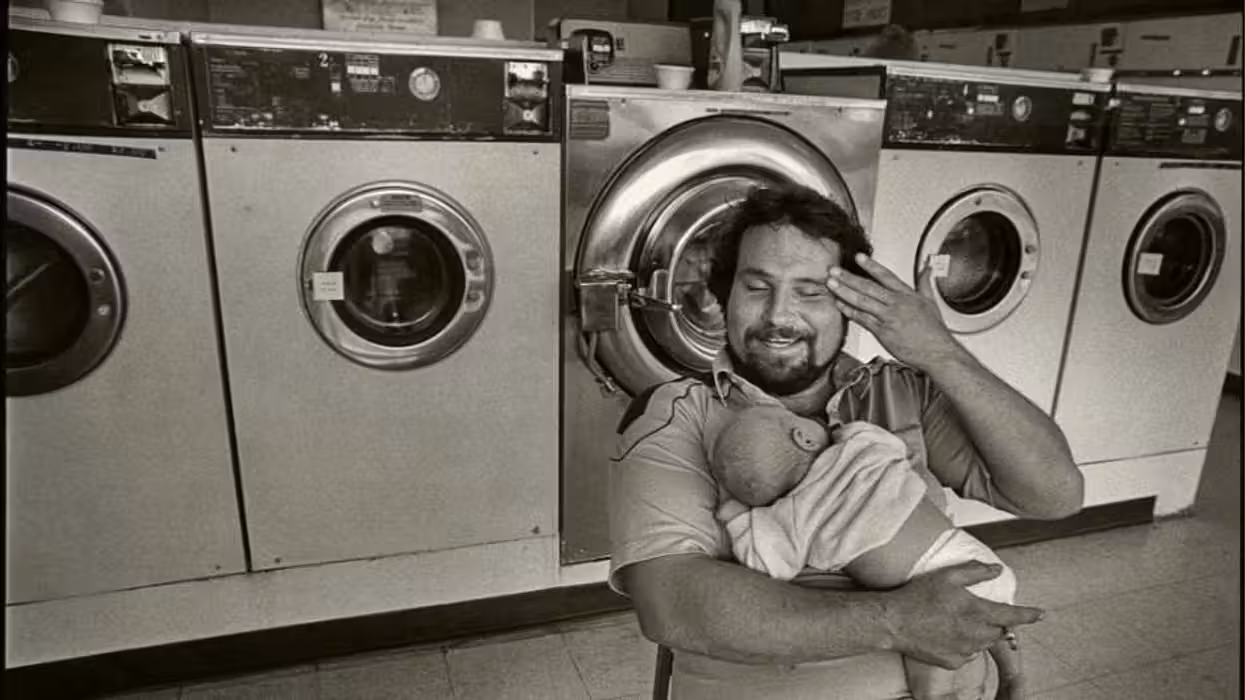
© 2025 Blaze Media LLC. All rights reserved.
Law Enforcement Just Met About a 'Kill Switch' to Curb Smartphone Thefts -- Concerned?
June 14, 2013
"The industry has a moral and social obligation to fix this problem."
Law enforcement met Thursday in New York City for a "Smartphone Summit" with the primary focus of coming up with a way to curb ever increasing smartphone thefts. The number one thing prosecutors and police are seeking from phone companies? A "kill switch" that could remotely render smartphones inoperable when stolen.
Citing statistics showing that 1 in 3 robberies nationwide involve the theft of a mobile phone, New York Attorney General Eric Schneiderman announced the formation of a coalition of law enforcement agencies devoted to stamping out what he called an "epidemic" of smartphone robberies.
 (Photo: Shutterstock.com)
(Photo: Shutterstock.com)
"All too often, these robberies turn violent," said Schneiderman, who was joined at a news conference by San Francisco District Attorney George Gascon. "There are assaults. There are murders."
The coalition, called the Secure Our Smartphones Initiative, includes prosecutors, police, political officials and consumer advocates from more than a dozen states. It is pressuring smartphone companies and their shareholders to help dry up the secondary market in stolen phones.
Watch this report about the newly launched initiative:
Although Schneiderman likens the ability to remotely turn off a cellphone to canceling a stolen credit card, not everyone thinks this ability is the answer to reduce thefts and get the devices back into the hands of proper owners.
 New York Attorney General Eric Schneiderman on May 1, 2013. (Photo: AP/Mike Groll)
New York Attorney General Eric Schneiderman on May 1, 2013. (Photo: AP/Mike Groll)
Just as some had concerns about the ability of OnStar-enabled vehicles to be remotely turned off when stolen -- the service shut down a stolen car in 2012 -- some too have pointed out the potential for abuse of such a feature on smartphones. Others say the initiative would not even really cut down on thefts.
Anna Scantlin for Phone Dog wrote (emphasis added):
My first thought was that this kill switch could be a gold mine for carriers – a huge amount of income is generated every year from people who have had lost or stolen devices (especially if no insurance covering such inconveniences was ever added). By adding a kill switch, the phone presumably becomes unusable. Should the user report the phone as “stolen” and it actually just ends up just falling between the seats in your car, would the owner be SOL? Would the phone be rendered useless regardless? My hope is that, if this comes to fruition, carriers will be able to unbrick the phone as well once the owner can prove that they’re truly who they say they are.But even that doesn’t cover all of the bases. Many shady businesses still operate in such a way that they’ll take any type of phone, bricked or not, and trade it in for a monetary value. I would be willing to bet that these types of businesses would only benefit from the influx of bricked devices that would flood in should this act take effect, and would likely not slow down phone thefts.
Another major question to ask is this: Would the kill switch be a mandatory requirement to own the phone, or would be an opt-in service? By not creating an opt-in service, felons have a 50/50 chance of scoring a device that decided not to opt-in, therefore also likely not slowing down the amount of phone thefts today. However, by making it mandatory the result could be that people see this as a ploy for carriers to have more control over their devices than necessary.
Currently, there are some apps -- like Find My iPhone -- that have used GPS to help track stolen devices.
After the summit, Schneiderman and Gascon released a statement saying they "asked the companies to commit to develop effective solutions to this national crime wave and install them on all new products within one year."
Apple said at a developers' conference this week that such a feature would be part of its iOS7 software to be released in the fall. Gascon and Schneiderman said in a statement they were appreciative of the gesture but would reserve judgment until they could "understand its actual functionality."
"Apple has been very vague as to what the system will do," Gascon said at the news conference earlier Thursday. "We've been led to believe that it is not a 'kill switch.'"
A couple years ago, Apple filed a patent for a camera "kill switch," which would stop photos from being taken in banned areas, like museums and theaters. Some at the time worried this technology could be used to hinder documentation of things like protests though.
The Huffington Post reported Samsung saying it would add such a "kill switch" feature to its new phones starting as early as July 1.
In New York, police have coined the term "Apple-picking" to describe thefts of the popular iPhone and other mobile products, like iPads. Phone thefts comprise 40 percent of all robberies in New York City, authorities say.
Gascon said "the industry has a moral and social obligation to fix this problem" of cellphone thefts.
The Associated Press contributed to this report. Featured image via Shutterstock.com.
--
[related]
Want to leave a tip?
We answer to you. Help keep our content free of advertisers and big tech censorship by leaving a tip today.
Want to join the conversation?
Already a subscriber?
more stories
Sign up for the Blaze newsletter
By signing up, you agree to our Privacy Policy and Terms of Use, and agree to receive content that may sometimes include advertisements. You may opt out at any time.
Related Content
© 2025 Blaze Media LLC. All rights reserved.
Get the stories that matter most delivered directly to your inbox.
By signing up, you agree to our Privacy Policy and Terms of Use, and agree to receive content that may sometimes include advertisements. You may opt out at any time.






